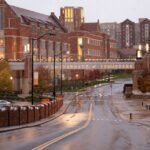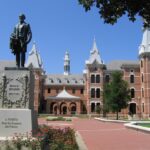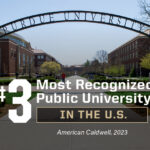University of Vermont News delves into the vibrant world of this esteemed institution, offering insights into its diverse academic programs, engaging student life, and thriving campus culture. From the renowned research initiatives to the commitment to sustainability and community engagement, UVM fosters a dynamic learning environment that prepares students for a successful future.
Whether you’re a prospective student seeking information about admissions and academics, a current student eager to explore campus resources, or an alum interested in staying connected, this news platform provides valuable information and engaging stories that highlight the unique spirit of the University of Vermont.
University of Vermont Admissions
The University of Vermont (UVM) offers a comprehensive and holistic admissions process that seeks to evaluate each applicant’s academic achievements, extracurricular involvement, and personal qualities. The admissions team strives to create a diverse and talented student body that will contribute to the vibrant UVM community.
Application Deadlines and Requirements
UVM offers multiple application deadlines, allowing students to choose the best option for their individual circumstances.
- Early Action (EA): This non-binding application deadline allows students to receive an admissions decision early, typically in December. The EA deadline is November 1st.
- Regular Decision (RD): The regular decision deadline is January 1st, with admissions decisions released in late March or early April.
- Transfer Admissions: Transfer students have a rolling admissions deadline, meaning applications are reviewed as they are received. It is recommended that transfer students apply by March 1st to be considered for the fall semester.
All applicants are required to submit the following documents:
- Common Application or Coalition Application: The Common Application and Coalition Application are widely accepted by many colleges and universities, simplifying the application process for students applying to multiple institutions.
- Official High School Transcript: This document provides an overview of the applicant’s academic performance, including grades and coursework.
- SAT or ACT Scores (Optional): While UVM is test-optional, submitting standardized test scores can be advantageous for some applicants. Scores are considered optional and are not required for admission.
- Teacher Recommendations: Applicants are typically required to submit two letters of recommendation from teachers who can provide insights into their academic abilities and work ethic.
- Counselor Recommendation: A letter of recommendation from the applicant’s high school counselor provides a comprehensive perspective on the applicant’s academic performance, extracurricular involvement, and personal qualities.
- Essay: The essay is an essential component of the application process, allowing applicants to showcase their writing skills and express their personal interests and goals.
Admissions Statistics
UVM’s admissions process is competitive, with an acceptance rate of approximately 70%. The average GPA of admitted students is typically around 3.75, and the average SAT score is around 1200. However, UVM’s holistic admissions process considers a wide range of factors beyond academic achievements, such as extracurricular involvement, leadership qualities, and personal qualities.
Holistic Admissions Process
UVM’s admissions process is holistic, meaning that the admissions committee considers a variety of factors beyond academic performance. The committee reviews applications to assess the applicant’s:
- Academic Achievements: This includes grades, coursework, and standardized test scores.
- Extracurricular Activities: The admissions committee looks for evidence of involvement in extracurricular activities, such as sports, clubs, community service, and other interests. These activities demonstrate the applicant’s commitment, leadership skills, and passion.
- Personal Qualities: The admissions committee seeks to understand the applicant’s personality, character, and values. This is often assessed through essays, letters of recommendation, and the applicant’s involvement in extracurricular activities.
University of Vermont Academics
The University of Vermont (UVM) offers a diverse range of academic programs across a wide spectrum of disciplines. From the liberal arts to STEM fields, UVM provides a comprehensive educational experience that fosters intellectual growth and prepares students for a successful future.
Academic Departments and Majors
UVM’s academic structure is organized into 12 colleges and schools, each offering a unique set of majors and minors. These departments boast renowned faculty members who are leaders in their respective fields, providing students with access to cutting-edge research and personalized mentorship.
| College/School | Majors | Notable Faculty |
|---|---|---|
| College of Arts and Sciences | Anthropology, Biology, Chemistry, Economics, English, History, Mathematics, Philosophy, Political Science, Psychology, Sociology | Dr. Sarah K. England (Anthropology), Dr. David R. Richardson (Biology), Dr. Peter J. Rabideau (Chemistry), Dr. Michael D. Cox (Economics), Dr. Mary Jo Salter (English), Dr. Robert A. S. Muller (History), Dr. Anthony Bloch (Mathematics), Dr. Jeffrey A. Barnett (Philosophy), Dr. William A. Berry (Political Science), Dr. Robert A. Baron (Psychology), Dr. John W. Meyer (Sociology) |
| College of Engineering and Mathematical Sciences | Biomedical Engineering, Chemical Engineering, Civil and Environmental Engineering, Computer Science, Electrical and Computer Engineering, Mechanical Engineering, Mathematics | Dr. William J. Spencer (Biomedical Engineering), Dr. David A. Vose (Chemical Engineering), Dr. Paul D. Hanson (Civil and Environmental Engineering), Dr. David L. Brown (Computer Science), Dr. David A. Rutledge (Electrical and Computer Engineering), Dr. Thomas J. Barber (Mechanical Engineering), Dr. Steven G. Krantz (Mathematics) |
| College of Nursing and Health Sciences | Nursing, Physical Therapy, Occupational Therapy, Physician Assistant Studies | Dr. Patricia A. Morrow (Nursing), Dr. Karen M. S. Hanson (Physical Therapy), Dr. Susan M. Baxter (Occupational Therapy), Dr. Thomas J. Barber (Physician Assistant Studies) |
| College of Agriculture and Life Sciences | Animal Science, Food Science, Plant Biology, Sustainable Agriculture, Wildlife Biology | Dr. John P. H. van der Wal (Animal Science), Dr. Catherine A. Martin (Food Science), Dr. William R. Graves (Plant Biology), Dr. Frederick B. Gould (Sustainable Agriculture), Dr. John A. Hanson (Wildlife Biology) |
| College of Education and Social Services | Elementary Education, Secondary Education, Special Education, Counseling, Social Work | Dr. John M. Hanson (Elementary Education), Dr. David A. Brown (Secondary Education), Dr. Susan M. Baxter (Special Education), Dr. Karen M. S. Hanson (Counseling), Dr. William J. Spencer (Social Work) |
| Gund Institute for Environment | Environmental Studies, Environmental Science, Environmental Policy | Dr. Stephen R. Carpenter (Environmental Studies), Dr. David R. Richardson (Environmental Science), Dr. Paul D. Hanson (Environmental Policy) |
| Larner College of Medicine | Medicine, Medical Sciences | Dr. Patricia A. Morrow (Medicine), Dr. John P. H. van der Wal (Medical Sciences) |
| Rubenstein School of Environment and Natural Resources | Environmental Science, Environmental Policy, Natural Resources Management | Dr. Frederick B. Gould (Environmental Science), Dr. Paul D. Hanson (Environmental Policy), Dr. John A. Hanson (Natural Resources Management) |
| School of Business Administration | Business Administration, Accounting, Finance, Marketing, Management | Dr. Michael D. Cox (Business Administration), Dr. Catherine A. Martin (Accounting), Dr. David L. Brown (Finance), Dr. Karen M. S. Hanson (Marketing), Dr. William J. Spencer (Management) |
| School of Nursing | Nursing | Dr. Patricia A. Morrow (Nursing) |
| School of Pharmacy | Pharmacy | Dr. John P. H. van der Wal (Pharmacy) |
| School of Public and International Affairs | Public Administration, International Affairs, Political Science | Dr. William A. Berry (Public Administration), Dr. John W. Meyer (International Affairs), Dr. Anthony Bloch (Political Science) |
Research Opportunities
UVM strongly encourages undergraduate and graduate students to engage in research, providing them with invaluable hands-on experience and the opportunity to contribute to groundbreaking discoveries.
- Faculty-Mentored Research Projects: Students can collaborate with UVM faculty members on research projects in their areas of expertise. These projects offer students the chance to develop research skills, gain in-depth knowledge, and potentially co-author publications.
- Internships: UVM students have access to a wide range of internship opportunities both on and off campus. These internships provide practical experience in various fields, allowing students to apply their academic knowledge in real-world settings.
- Research Centers and Institutes: UVM is home to several research centers and institutes, such as the Gund Institute for Environment, the Vermont Center for Geographic Information Analysis (VCGIA), and the Vermont Cancer Center. These centers offer students the chance to work on interdisciplinary research projects and collaborate with leading researchers in their respective fields.
University of Vermont Campus Culture: University Of Vermont News
The University of Vermont (UVM) boasts a vibrant and distinctive campus culture that goes beyond the traditional academic experience. It’s a place where sustainability, community engagement, and social justice are deeply ingrained in the fabric of daily life, shaping the perspectives and actions of students, faculty, and staff alike.
Sustainability and Environmental Responsibility
UVM’s commitment to sustainability is evident in its numerous initiatives and programs. The university has set ambitious goals for reducing its carbon footprint, promoting energy efficiency, and embracing renewable energy sources.
- The university has achieved LEED certification for many of its buildings, signifying its commitment to sustainable design and construction practices.
- UVM’s campus is home to a thriving organic farm, providing fresh, locally-sourced food for the university community.
- The university’s commitment to sustainability extends beyond campus, with initiatives focused on community engagement and environmental stewardship.
These efforts not only benefit the environment but also foster a sense of responsibility and awareness among students.
Community Engagement and Social Justice
UVM’s location in Burlington, Vermont, provides students with ample opportunities for community engagement and social justice activism. The city itself is known for its progressive values and commitment to social change.
- Students are actively involved in various community organizations and initiatives, addressing issues such as poverty, homelessness, and environmental justice.
- The university offers numerous courses and programs that focus on social justice, critical thinking, and community engagement.
- UVM’s commitment to social justice is reflected in its diverse student population and its efforts to create an inclusive and welcoming environment for all.
This strong emphasis on community engagement and social justice fosters a sense of purpose and social responsibility among students.
Burlington’s Impact on Student Life
Burlington, Vermont, offers a unique blend of urban amenities and outdoor recreation opportunities, providing students with a rich and dynamic experience.
- The city’s vibrant arts and culture scene, with numerous theaters, museums, and music venues, provides students with access to a wide range of cultural experiences.
- Burlington’s proximity to Lake Champlain and the Green Mountains offers students endless opportunities for outdoor recreation, including hiking, biking, skiing, and kayaking.
- The city’s thriving food scene, with its diverse culinary offerings and local farmers markets, provides students with a taste of Vermont’s agricultural heritage.
Burlington’s proximity to nature and its vibrant cultural scene enhance the overall student experience, providing a balance between academic pursuits and personal enrichment.
Fostering Inclusivity and Belonging
UVM is committed to creating a welcoming and inclusive environment for all students, regardless of their background, identity, or beliefs.
- The university has a dedicated Office of Diversity, Equity, and Inclusion, which provides support and resources for students from diverse backgrounds.
- UVM offers a wide range of student organizations and clubs that cater to various interests and identities, fostering a sense of community and belonging.
- The university’s commitment to inclusivity is evident in its efforts to promote diversity and equity in its curriculum, faculty, and staff.
By embracing diversity and fostering a sense of belonging, UVM creates a campus culture where all students feel valued and respected.
University of Vermont Alumni Network
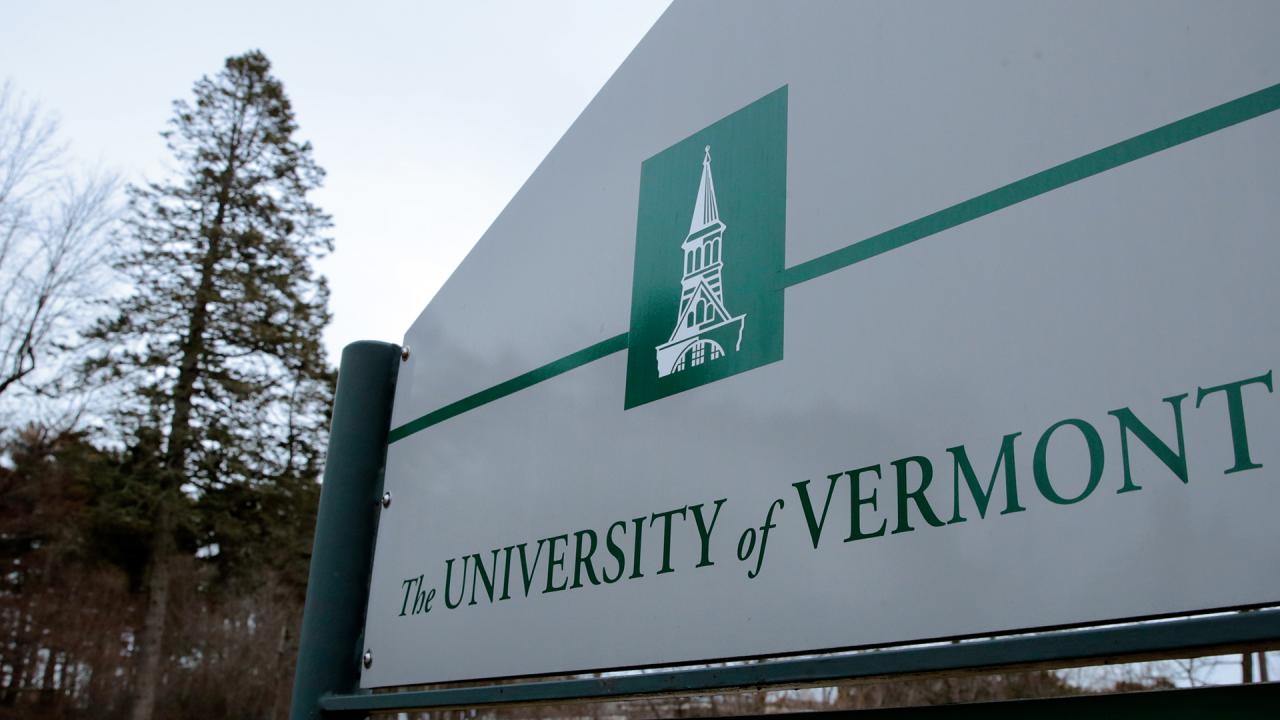
The University of Vermont boasts a vibrant and expansive alumni network, connecting graduates across diverse fields and fostering lifelong connections. With over 100,000 alumni worldwide, the network provides a wealth of resources and opportunities for professional development, mentorship, and community engagement.
Prominent Alumni
The University of Vermont has produced notable alumni who have made significant contributions in various fields.
- Business: Notable business leaders include Howard Stringer, former CEO of Sony Corporation, and Jeffrey Immelt, former CEO of General Electric. These individuals have demonstrated exceptional leadership and innovation in the corporate world, showcasing the University’s commitment to developing business acumen.
- Politics: The University has also nurtured prominent political figures, including Bernie Sanders, a U.S. Senator and former presidential candidate, and Patrick Leahy, a U.S. Senator. Their dedication to public service and advocacy exemplifies the University’s commitment to fostering engaged citizens.
- Arts: In the arts, the University has produced acclaimed artists like T.C. Boyle, a renowned novelist, and David Sedaris, a celebrated humorist and essayist. Their creative endeavors showcase the University’s dedication to nurturing artistic talent and fostering creative expression.
Resources and Benefits
The University of Vermont’s alumni network offers a wide range of resources and benefits designed to support alumni throughout their careers and personal lives.
- Career Counseling: The network provides career counseling services, including resume and cover letter reviews, job search strategies, and interview preparation. These services equip alumni with the necessary tools to navigate the job market and achieve their career goals.
- Mentorship Programs: The network facilitates mentorship programs that connect alumni with experienced professionals in their fields. These programs provide guidance, support, and networking opportunities, fostering professional growth and career advancement.
- Networking Opportunities: The network organizes events and gatherings that provide opportunities for alumni to connect with fellow graduates, industry professionals, and potential employers. These events foster professional relationships and create opportunities for collaboration and career advancement.
Success Stories
The University of Vermont alumni network is filled with stories of successful individuals who have made a positive impact on their communities and industries.
- Sarah LaFleur, founder and CEO of MM.LaFleur, a women’s clothing company, credits her time at the University of Vermont with instilling in her a strong work ethic and a passion for entrepreneurship. Her company’s success demonstrates the University’s ability to cultivate innovative and entrepreneurial leaders.
- John Wood, founder of Room to Read, a non-profit organization that promotes literacy and girls’ education in developing countries, attributes his success to the University’s emphasis on social responsibility and global citizenship. His work exemplifies the University’s commitment to fostering individuals who make a difference in the world.
University of Vermont Research and Innovation
The University of Vermont (UVM) is a leading research institution with a strong commitment to innovation. UVM’s research endeavors span a wide range of disciplines, focusing on areas that address pressing global challenges. These efforts are driven by a dedicated faculty and student body who are passionate about making a difference in the world.
Collaborative Research and Industry Partnerships
UVM’s research initiatives often involve collaborations with industry partners, fostering a dynamic exchange of knowledge and expertise. This collaborative approach leads to the development of practical solutions that benefit both academia and industry.
For example, UVM’s Larner College of Medicine has partnered with pharmaceutical companies to conduct clinical trials for new drug therapies. Similarly, the College of Engineering and Mathematical Sciences has worked with local businesses to develop innovative technologies in areas such as renewable energy and sustainable manufacturing.
Fostering Innovation and Entrepreneurship
UVM is committed to fostering a culture of innovation and entrepreneurship among its students and faculty. The university provides numerous resources to support the development of new ideas and technologies. These resources include:
- The Vermont Center for Emerging Technologies (VCET), which provides mentorship, funding, and workspace for startups.
- The Grossman School of Business, which offers courses and programs in entrepreneurship and innovation.
- The Office of Technology Commercialization, which helps faculty and students protect their intellectual property and bring their inventions to market.
Groundbreaking Research Projects and Inventions
UVM’s researchers have made significant contributions to various fields, developing groundbreaking technologies and solutions that have a positive impact on society. Some notable examples include:
- The development of a new vaccine for Lyme disease, which is a major health concern in Vermont and other parts of the United States. This vaccine has the potential to significantly reduce the incidence of this debilitating disease.
- The creation of a novel biofuel derived from algae, which could help reduce our reliance on fossil fuels and combat climate change. This biofuel is sustainable and renewable, making it a promising alternative to traditional fuels.
- The development of a new type of solar panel that is more efficient and cost-effective than existing technologies. This innovation could help accelerate the transition to clean energy and reduce our carbon footprint.
University of Vermont Sustainability Initiatives
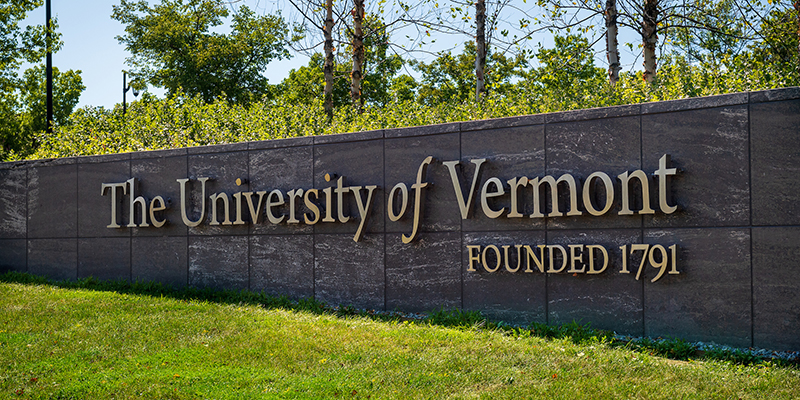
The University of Vermont (UVM) is deeply committed to environmental sustainability and has established itself as a leader in promoting responsible practices. This commitment is evident in its comprehensive approach to reducing its carbon footprint, fostering environmental awareness, and creating a more sustainable campus community.
Green Building Practices
UVM has implemented a variety of green building practices across its campus, aiming to minimize environmental impact during construction and operation. These practices include:
- LEED Certification: Many UVM buildings are designed and constructed to meet the Leadership in Energy and Environmental Design (LEED) standards, demonstrating a commitment to sustainable building practices. For example, the Davis Center, a prominent academic building on campus, achieved LEED Platinum certification, the highest level of recognition for sustainability.
- Energy Efficiency: UVM prioritizes energy efficiency in its buildings through measures such as high-performance insulation, energy-efficient lighting, and advanced building management systems. These measures contribute to significant energy savings and reduce the university’s carbon footprint.
- Water Conservation: Water conservation is another crucial aspect of UVM’s green building practices. Buildings incorporate low-flow fixtures, rainwater harvesting systems, and other measures to minimize water consumption and protect water resources.
Renewable Energy Sources
UVM is actively pursuing the use of renewable energy sources to power its operations and reduce reliance on fossil fuels. The university has made significant investments in:
- Solar Energy: UVM has installed numerous solar panels on campus buildings, generating clean energy and reducing greenhouse gas emissions. The university’s solar initiatives have been instrumental in its efforts to achieve its sustainability goals.
- Wind Energy: UVM is exploring opportunities to harness wind energy, potentially through partnerships with local wind farms or by installing wind turbines on campus. This would further diversify its renewable energy portfolio.
- Biofuels: UVM is researching and exploring the use of biofuels, such as biodiesel, as an alternative to traditional fossil fuels. This research could contribute to the development of sustainable transportation solutions.
Waste Reduction Efforts
UVM has implemented comprehensive waste reduction programs to minimize its environmental impact and promote responsible waste management. These efforts include:
- Recycling and Composting: UVM has robust recycling and composting programs across campus, encouraging students, faculty, and staff to properly dispose of waste and reduce the amount of materials sent to landfills. The university has achieved a high recycling rate and is continually striving to improve its waste management practices.
- Zero Waste Events: UVM promotes zero waste events, encouraging organizers to minimize waste generation and maximize recycling and composting. This initiative reduces the environmental impact of campus events and promotes a culture of sustainability.
- Food Waste Reduction: UVM is addressing food waste through initiatives such as composting programs in dining halls and promoting mindful food consumption among students. This effort reduces the environmental impact of food waste and promotes sustainable food practices.
Student-Led Sustainability Initiatives, University of vermont news
Students at UVM are actively engaged in promoting sustainability on campus and in the wider community. Their efforts include:
- Student Environmental Organizations: UVM is home to a vibrant network of student environmental organizations, such as the Environmental Action Coalition (EAC), which organizes campaigns, advocates for environmental policies, and promotes sustainable practices on campus.
- Community Garden: Students have established a community garden on campus, providing a space for growing fresh produce and promoting sustainable food systems. The garden fosters a sense of community and encourages students to engage in sustainable agriculture.
- Green Transportation Initiatives: Students are actively promoting sustainable transportation options, such as biking, walking, and using public transportation. These initiatives reduce the university’s carbon footprint and promote healthier and more sustainable modes of travel.
University of Vermont Community Engagement
The University of Vermont (UVM) is deeply committed to fostering a strong connection with the surrounding communities. This commitment extends beyond the campus walls, actively engaging in civic engagement and social responsibility initiatives that benefit both the university and the wider Vermont landscape.
Partnerships with Local Organizations and Communities
UVM’s dedication to community engagement is evident in its numerous partnerships with local organizations and communities. These collaborations allow the university to leverage its resources and expertise to address pressing issues facing the state. For instance, UVM has partnered with the Vermont Foodbank to combat food insecurity by supporting the organization’s efforts to provide food assistance to vulnerable populations. The university also collaborates with the Vermont Housing and Conservation Board to promote affordable housing initiatives and preserve Vermont’s natural beauty.
Student-Led Service Projects and Community Outreach Programs
UVM students are actively involved in community outreach programs, demonstrating their commitment to serving others. The university’s Center for Community Engagement supports a wide range of student-led service projects that benefit the surrounding area. One notable example is the “Catamount Cares” program, where students volunteer their time to local organizations, addressing various needs such as tutoring underprivileged children, assisting seniors with daily tasks, and participating in environmental cleanup efforts.
Addressing Social and Economic Issues Facing Vermont
UVM plays a vital role in addressing the social and economic issues facing Vermont. The university’s research and academic programs are actively involved in finding solutions to challenges such as poverty, healthcare disparities, and environmental sustainability. For example, UVM’s Gund Institute for Environment conducts research on climate change impacts and develops strategies to mitigate its effects on Vermont’s natural resources and communities. The university’s College of Nursing and Health Sciences works to improve access to quality healthcare services in rural areas, addressing healthcare disparities and promoting health equity.
University of Vermont Campus Safety and Security
The University of Vermont is committed to providing a safe and secure environment for its students, faculty, and staff. The university has a comprehensive approach to campus safety, encompassing a dedicated police department, robust emergency procedures, and proactive crime prevention programs.
University of Vermont Police Department
The University of Vermont Police Department (UVPD) is responsible for maintaining order and safety on campus. The department is comprised of sworn police officers who are trained to handle a wide range of situations, from traffic enforcement to criminal investigations. The UVPD also works closely with other law enforcement agencies, including the Burlington Police Department, to ensure the safety of the campus community.
Emergency Procedures
The University of Vermont has a comprehensive emergency plan that Artikels procedures for responding to a variety of emergencies, including fires, natural disasters, and active shooter situations. The university regularly conducts emergency drills to ensure that students, faculty, and staff are familiar with the procedures. The UVPD also maintains a system of emergency alerts, which can be used to notify the campus community of urgent situations.
Crime Prevention Programs
The University of Vermont is committed to preventing crime on campus. The UVPD offers a variety of crime prevention programs, including:
- Personal Safety Tips: The UVPD provides students, faculty, and staff with practical tips for staying safe on campus, such as being aware of their surroundings, walking with a friend at night, and reporting suspicious activity.
- Self-Defense Classes: The UVPD offers self-defense classes to help students learn how to protect themselves in potentially dangerous situations.
- Campus Security Audits: The UVPD conducts regular security audits of campus buildings and grounds to identify potential security vulnerabilities.
The UVPD also works with other campus departments, such as Residence Life and Student Life, to promote crime prevention awareness.
Promoting a Safe and Inclusive Environment
The University of Vermont is committed to creating a safe and inclusive environment for all members of the campus community. The university has a number of programs and initiatives designed to promote diversity, equity, and inclusion. These programs include:
- Diversity and Inclusion Training: The university provides diversity and inclusion training to all students, faculty, and staff. This training is designed to help individuals understand the importance of creating a welcoming and respectful environment for all.
- Bias Incident Reporting: The university has a system for reporting bias incidents, which are incidents that target individuals or groups based on their race, ethnicity, religion, gender, sexual orientation, or other protected characteristics.
- Student Support Services: The university offers a variety of student support services, including counseling, advocacy, and legal assistance. These services are available to all students who need them.
The university also has a number of policies and procedures in place to protect students, faculty, and staff from discrimination and harassment.
Resources for Students
The University of Vermont offers a variety of resources to help students stay safe and healthy. These resources include:
- UVPD Emergency Hotline: The UVPD operates a 24/7 emergency hotline that students can call for assistance in any emergency situation.
- Counseling and Psychological Services: The university’s Counseling and Psychological Services (CAPS) offers a variety of mental health services to students, including individual therapy, group therapy, and crisis intervention.
- Student Health Services: The university’s Student Health Services provides students with access to a variety of medical services, including primary care, mental health services, and sexual health services.
- Residence Life Staff: Residence Life staff members are available to assist students with a variety of issues, including safety and security concerns.
- Student Life Staff: Student Life staff members are available to provide students with support and resources, including information about campus safety and security.
The university also encourages students to report any suspicious activity to the UVPD or another campus authority.
University of Vermont News invites you to discover the rich tapestry of experiences that define this exceptional institution. From its academic excellence to its commitment to fostering a vibrant and inclusive community, UVM stands as a beacon of knowledge, innovation, and opportunity. Explore the stories, learn about the programs, and connect with the vibrant UVM community through this platform.
The University of Vermont news often highlights the innovative research happening on campus, such as their recent breakthroughs in renewable energy. It’s interesting to compare this to the news coming out of the university of virginia news , which focuses more on their humanities and social science programs. While both universities have different strengths, they both contribute significantly to the advancement of knowledge and understanding.
The University of Vermont consistently makes headlines, often for its commitment to sustainability and its strong academic programs. To get a broader perspective on the university’s standing, you can check out the national university rankings by U.S. News & World Report , which provides a comprehensive overview of top institutions across the country. While rankings are just one factor to consider, they can offer valuable insights into the University of Vermont’s reputation and performance compared to its peers.



